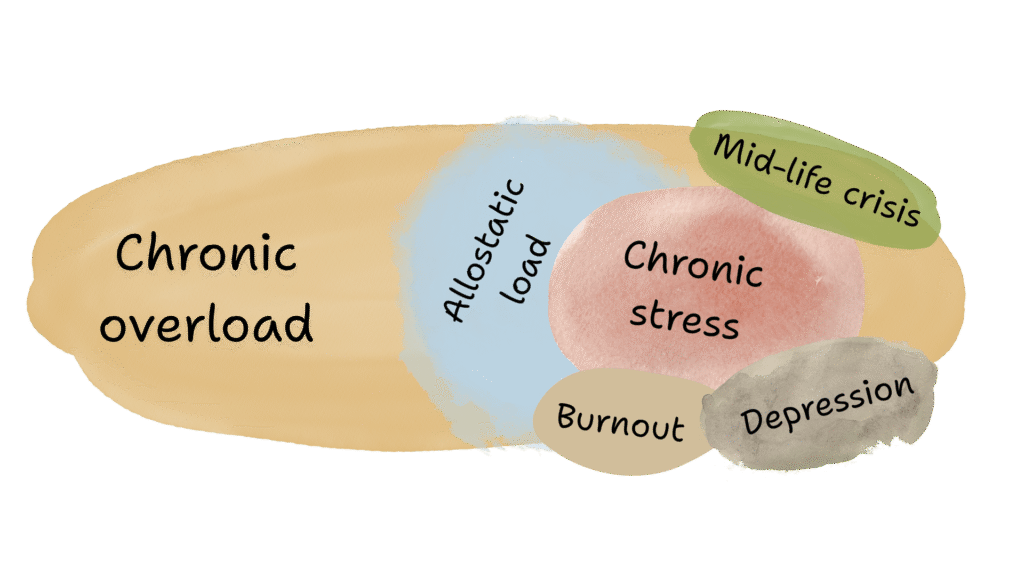On the surface they’re efficient, respected, reliable. Inside, something quieter takes hold: joy flattens, meaning slips, rest no longer restores. That’s the hidden cost of high performance.
—
What it’s about
Competence can harden into routine — you keep doing it simply because you’re good at it. Over time, that same strength drains your energy instead of fueling it.
- Efficiency can become a mask that hides depletion.
- Some of the most productive people feel hollow and dissatisfied.
- Real capacity isn’t just about output or recovery — it’s when you feel the drive, you lean into deep work. When rest calls, you pause. When lighter tasks fit better, you shift.
—
What’s happening
- It often starts in a season of excitement, not stress: new job, big project, promotion — you stretch beyond limits
- That pace? It becomes your new normal,
- You adapt: deliver, solve, carry things others drop,
- You don’t slow down — because you’re proud of what you can hold, others expect it, you expect it,
- But slowly: Joy flattens. Meaning slips. Rest stops working.
—
The result
Life looks fine on the outside — even outwardly successful.
Inside?
- Numbness, disconnection, doubt about meaning — a quiet sense of ‘this can’t be it,
- Strain in relationships,
- Chronic health problems,
You’re not collapsing — but there’s no satisfaction or fulfillment in what should feel like a successful life.
—
What now
The good news: Unless you’re in the very last stages of burnout (which is rare), improvement is not only possible — it’s usually surprisingly achievable, often with self-help. Even small changes can shift your capacity and bring relief.
Capacity is not just about output or recovery. It’s about being able to follow your inner compass in the moment — to lean into deep work when the drive is there, to pause when rest calls for it, to shift into lighter tasks when that’s what fits. Real capacity means you can act in sync with your natural rhythm, instead of forcing yourself to meet constant external demands.
- See your situation for what it is: chronic overload — the hidden cost of long-term adaptation to high performance.
- Realize how, over the years, you’ve adjusted to a rhythm that isn’t yours — to an environment that rewards performance over everything else.
Real change isn’t about quitting, slowing down, or doing less. It’s about:
- Noticing what gives you drive and energy and when you need rest,
- Protecting healthy boundaries around it,
- Be careful what you call ‘just life.’ Short bursts of stress are natural. But when emptiness, strained relationships, or chronic health issues become the new normal, that’s not ‘just life’ — that’s life in overload.
—
Tips
Since this is the pilot episode, I won’t dive too deep into specific strategies yet — that’s what the coming weeks are for.
For now, here’s a preview of what’s ahead:
- How to restructure time so you own at least part of your day.
- How to use short resets during the day — even 3 minutes of quiet can change the rhythm.
- How to protect meaningful boundaries — knowing when to say no, and how to do it without stress, shame, or guilt.
These are the kinds of practical steps we’ll unpack. The deeper work — around boundaries, rhythm, and identity — comes next.
—
About me
I used to be a startup entrepreneur. After a successful acquisition of my business, I became a corporate director. Then I left that career and turned my long-time passion into my profession: I became a full-time therapist and coach, helping high performers overcome overload and reclaim satisfaction in their lives.
—
Want more?
If this topic speaks to you, you can dive deeper into the details of this episode here:
- Start with FUEL #0 on my website
- You’ll also find curated links on my website to other media about chronic overload.
